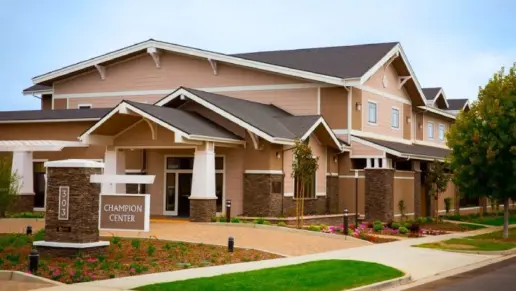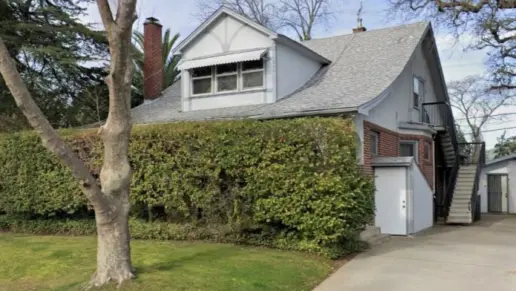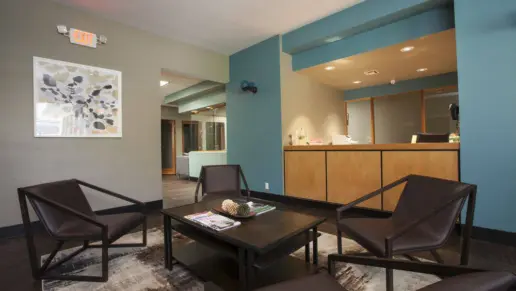About Glenn County Perinatal Program – Discovery House
Located in Willows, California, Glenn County Perinatal Program - Discovery House provides alcohol and drug rehab services to women with small children and pregnant women who are in need of addiction treatment. Their levels of care include residential and intensive outpatient programs.
The residential program includes detoxification to help women remove harmful substances from their bodies. Without proper supervision, detoxification can be dangerous or even lethal. This program guides women through the process of detoxing to offer a safe and effective method that prepares them for ongoing treatment. During residential treatment, individual therapy, group therapy, family therapy, parenting classes, coping skills classes, life skills classes, and spiritual support are provided. Women with small children may bring their children to treatment. Clients are encouraged to contact the center to learn more about the age range of children who are able to attend.
The intensive outpatient program (IOP) meets three times per week for three hours at a time. Individual therapy, group therapy, family therapy, couple’s counseling, relapse prevention services, holistic treatments, and spiritual guidance are provided. This program helps bridge the gap between residential and traditional outpatient care.
Glenn County Perinatal Program – Discovery House accepts most insurance plans, including HCSC, Wellmark, Cigna, Brightstar Health, Humana, Kaiser, and Blue Cross Blue Shield. Out of network benefits may vary, so it is important to verify insurance coverage with your provider prior to starting treatment.
Accepted Insurance
Other Forms of Payment
Medicaid is a state based program that helps lower-income individuals and families pay for healthcare. Medicaid covers addiction treatment so those enrolled can use their coverage to pay for rehab. When a program accepts Medicaid the client often pays very little or nothing out of their own pocket.
Self-pay involves paying for treatment out of your own pocket. You can use savings or credit, get a personal loan, or receive help from family and friends to fund your treatment. If you don't have insurance or your insurance plan doesn't cover a specific program, self-pay can help ensure you still get the care you need.
Addiction Treatments
Levels of Care
Treatments
The goal of treatment for alcoholism is abstinence. Those with poor social support, poor motivation, or psychiatric disorders tend to relapse within a few years of treatment. For these people, success is measured by longer periods of abstinence, reduced use of alcohol, better health, and improved social functioning. Recovery and Maintenance are usually based on 12 step programs and AA meetings.
Drug rehab in California teaches participants constructive ways to stay clean and sober. Treatment revolves around helping individuals stop using the substance they are addicted to and learn healthy habits to avoid relapse.
Many of those suffering from addiction also suffer from mental or emotional illnesses like schizophrenia, bipolar disorder, depression, or anxiety disorders. Rehab and other substance abuse facilities treating those with a dual diagnosis or co-occurring disorder administer psychiatric treatment to address the person's mental health issue in addition to drug and alcohol rehabilitation.
Opioid rehabs specialize in supporting those recovering from opioid addiction. They treat those suffering from addiction to illegal opioids like heroin, as well as prescription drugs like oxycodone. These centers typically combine both physical as well as mental and emotional support to help stop addiction. Physical support often includes medical detox and subsequent medical support (including medication), and mental support includes in-depth therapy to address the underlying causes of addiction.
Substance rehabs focus on helping individuals recover from substance abuse, including alcohol and drug addiction (both illegal and prescription drugs). They often include the opportunity to engage in both individual as well as group therapy.
Programs



Clinical Services
Group therapy is any therapeutic work that happens in a group (not one-on-one). There are a number of different group therapy modalities, including support groups, experiential therapy, psycho-education, and more. Group therapy involves treatment as well as processing interaction between group members.
Trauma therapy addresses traumatic incidents from a client's past that are likely affecting their present-day experience. Trauma is often one of the primary triggers and potential causes of addiction, and can stem from child sexual abuse, domestic violence, having a parent with a mental illness, losing one or both parents at a young age, teenage or adult sexual assault, or any number of other factors. The purpose of trauma therapy is to allow a patient to process trauma and move through and past it, with the help of trained and compassionate mental health professionals.
Contact Information
240 East Laural street
Willows, CA 95988







